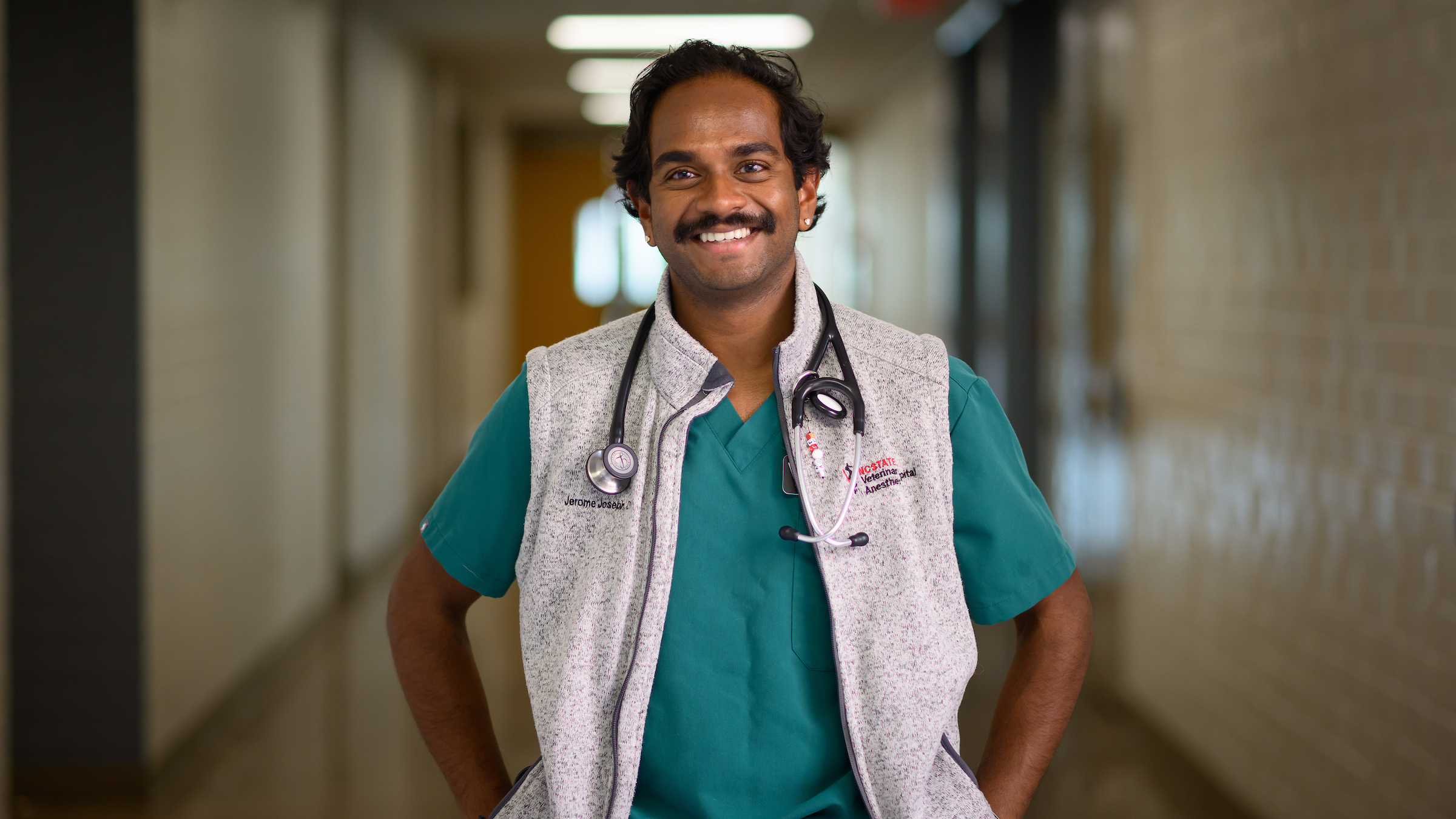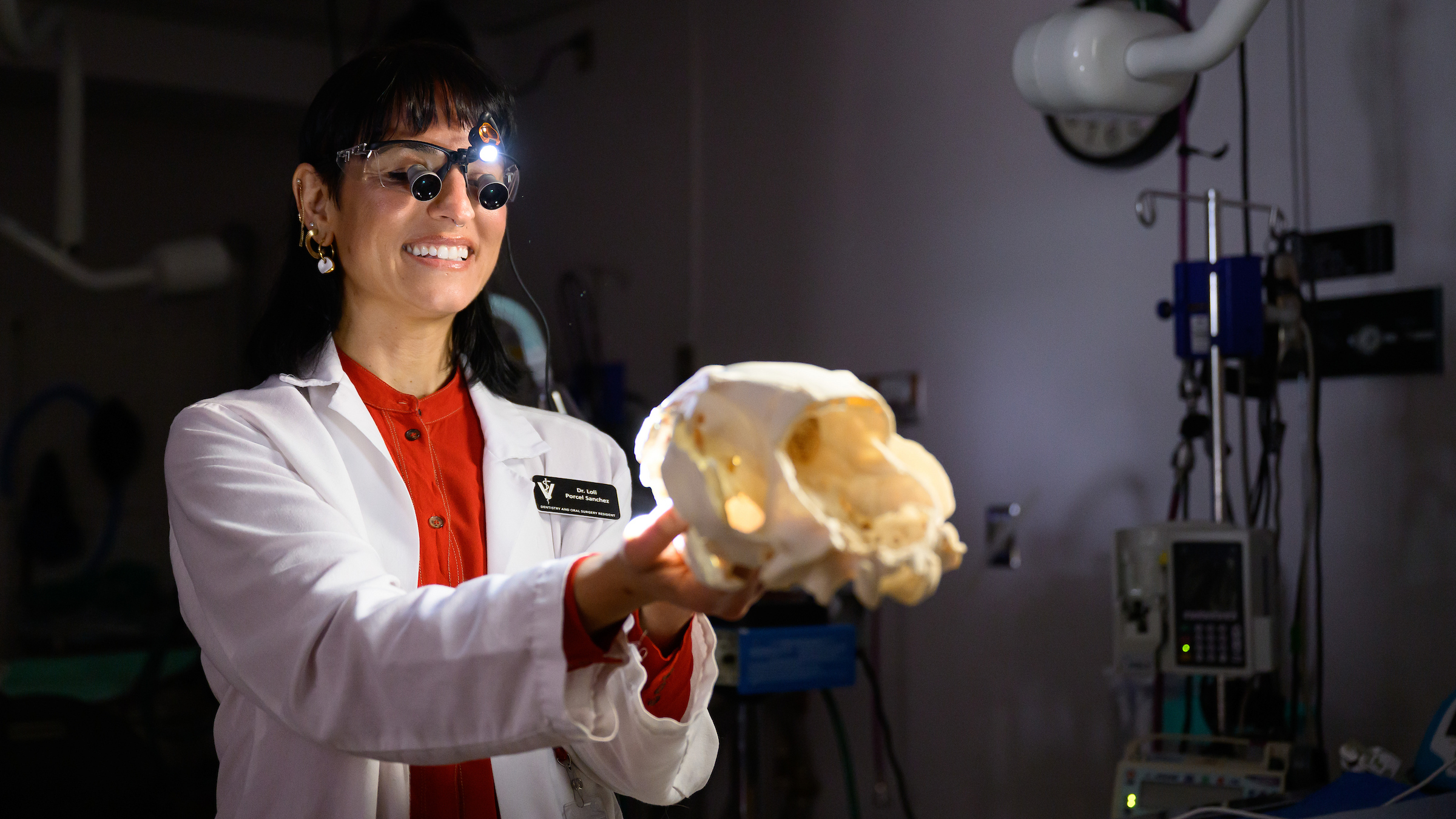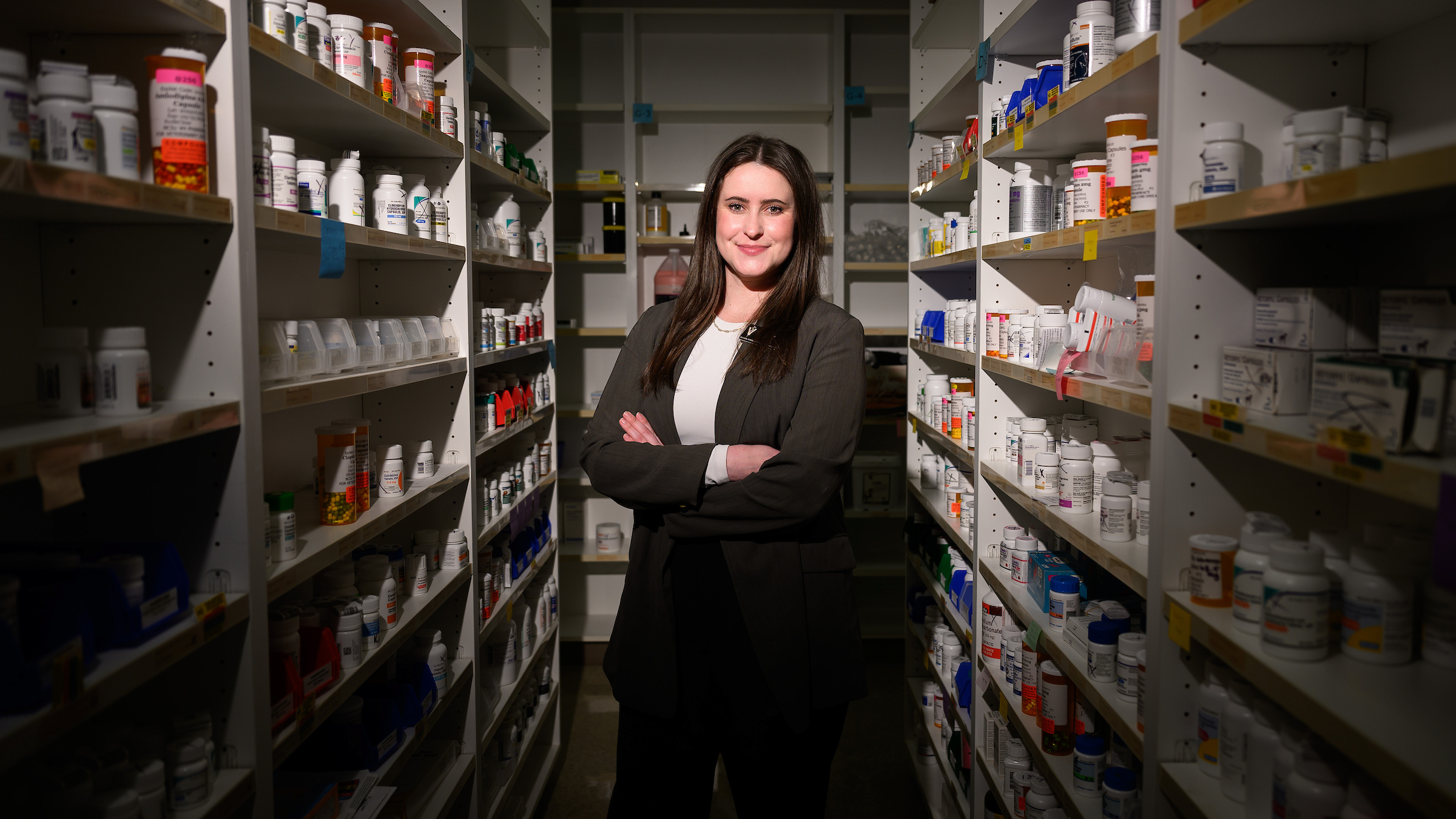House Officer Highlight: Through Specialized Sports Medicine Residency, Former Polo Player Helps Equine Athletes Return to the Field
A background in equestrian sports gives Dr. Sara Tufts, an NC State equine sports medicine and rehabilitation resident, an appreciation of the horse’s athletic capabilities and a comprehensive understanding of how to approach musculoskeletal injuries.
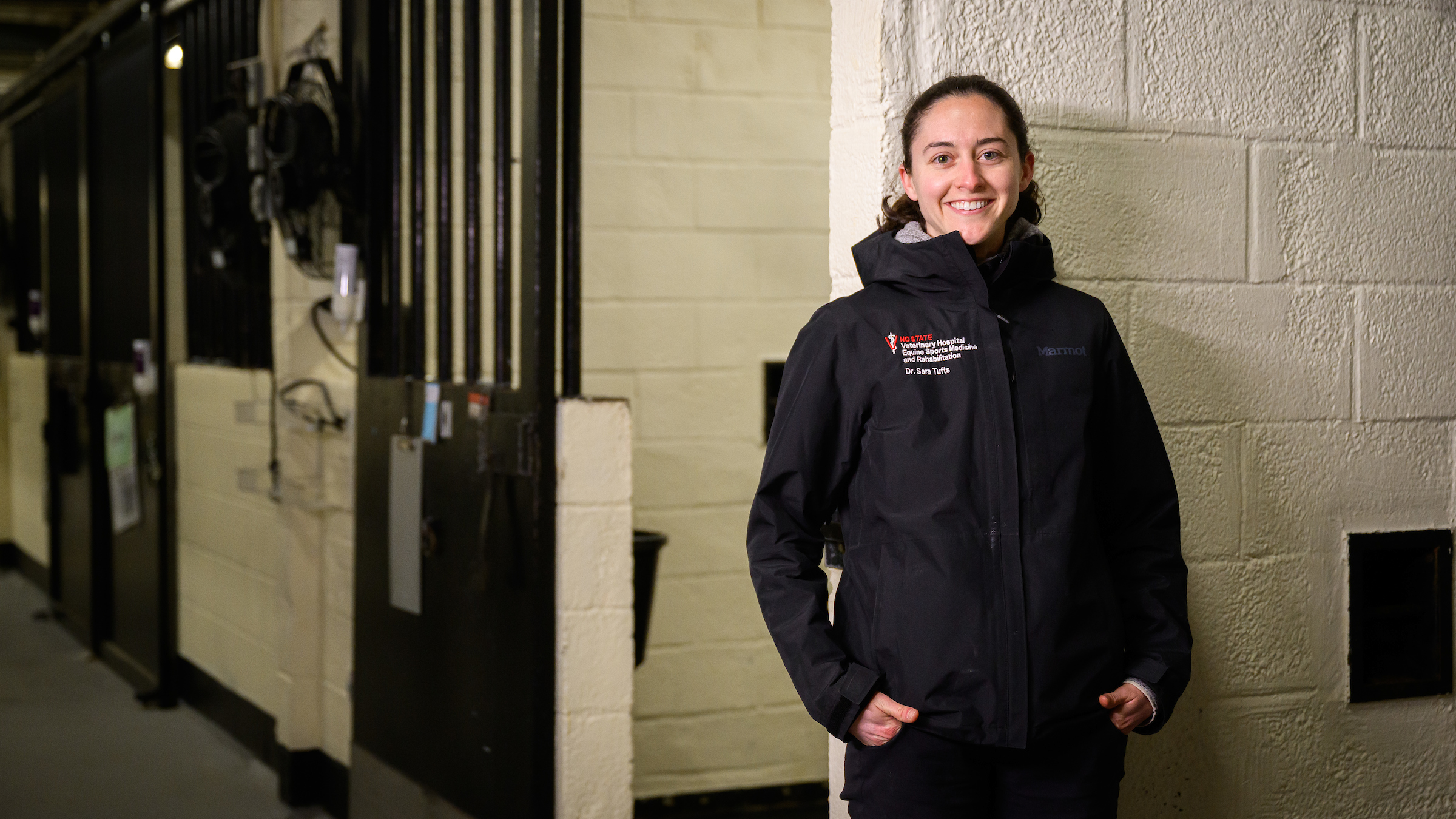
When second-year resident Dr. Sara Tufts talks about her collegiate polo experiences, her reflections focus not on the club’s skill — her University of Connecticut team went to the Women’s Final Four — but instead on the impressive capabilities of its equine athletes.
Tufts knows how deep the bond runs between equestrians and their horses and how that connection is strained when a horse sustains an injury that could affect its mobility or sports performance. Getting to collaborate with horse owners on a treatment plan that respects that bond is what drew her to working in equine sports medicine and rehabilitation.
“In the nature of the specialty, you’re trying to cover the whole issue,” Tufts says. “You’re there from diagnosis to treatment to rehabbing them and getting them back out. I really enjoy getting to be a part of that whole picture.”
Her patients run the gamut: Sports medicine and rehabilitation isn’t just for equine athletes, but for any horse with a musculoskeletal injury that affects its routine range of motion. Diagnosing and treating these conditions involves closely collaborating with orthopedic surgeons and using equipment as small as lameness locator sensors and as large as a hydrotherapy saltwater spa.
NC State is one of few universities nationwide to offer an equine-focused internship and residency in this growing veterinary specialty, something Tufts didn’t know as an incoming DVM student in 2017. Fortunately, her mentors saw a spark in her and guided her toward where she was meant to be. Polo and veterinary medicine, it turns out, are both team efforts.
“I wouldn’t have known that sports medicine was a possibility without NC State,” Tufts says. “I never thought there’d be an opportunity to do my internship and residency here. It’s been great.”
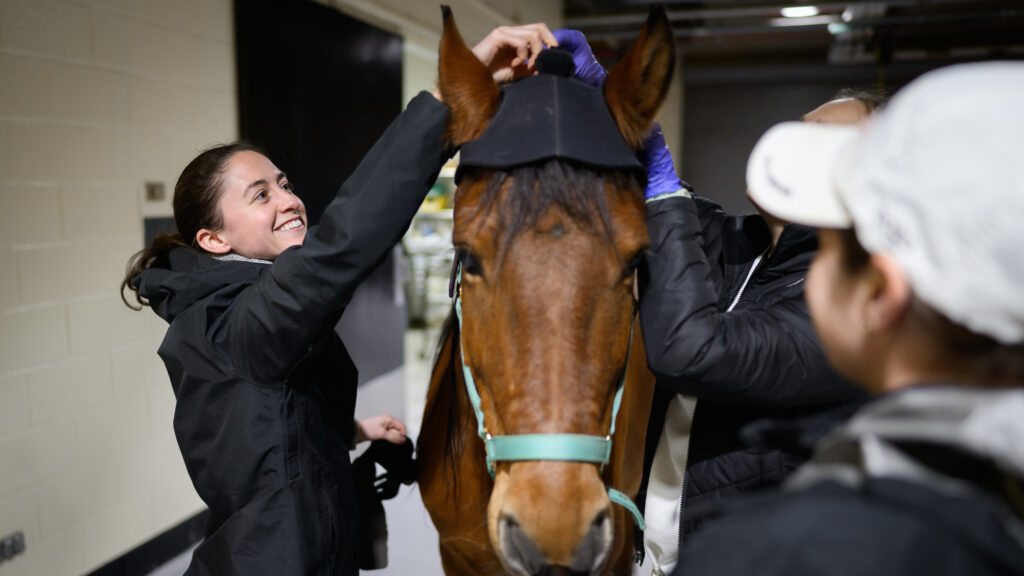
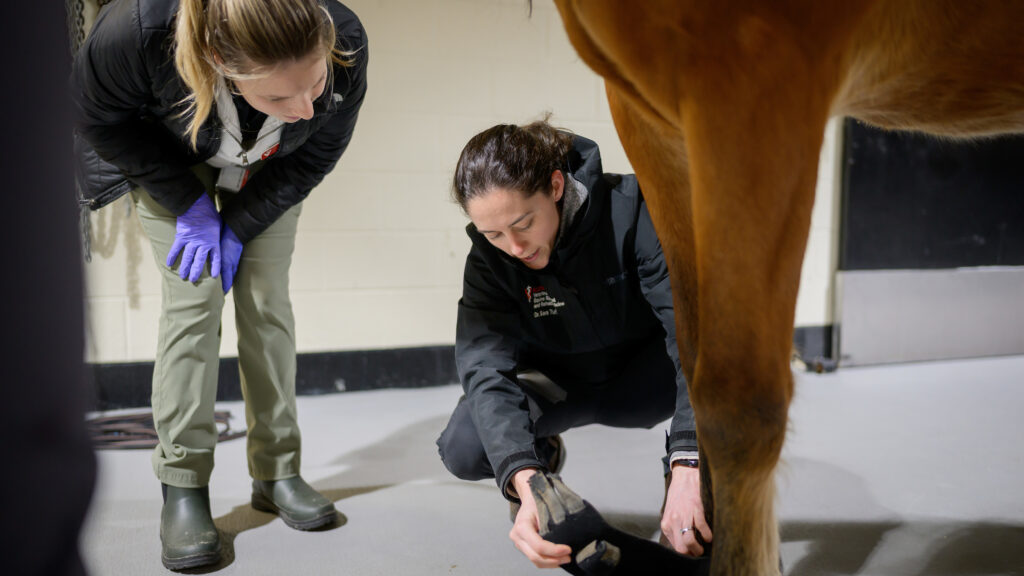
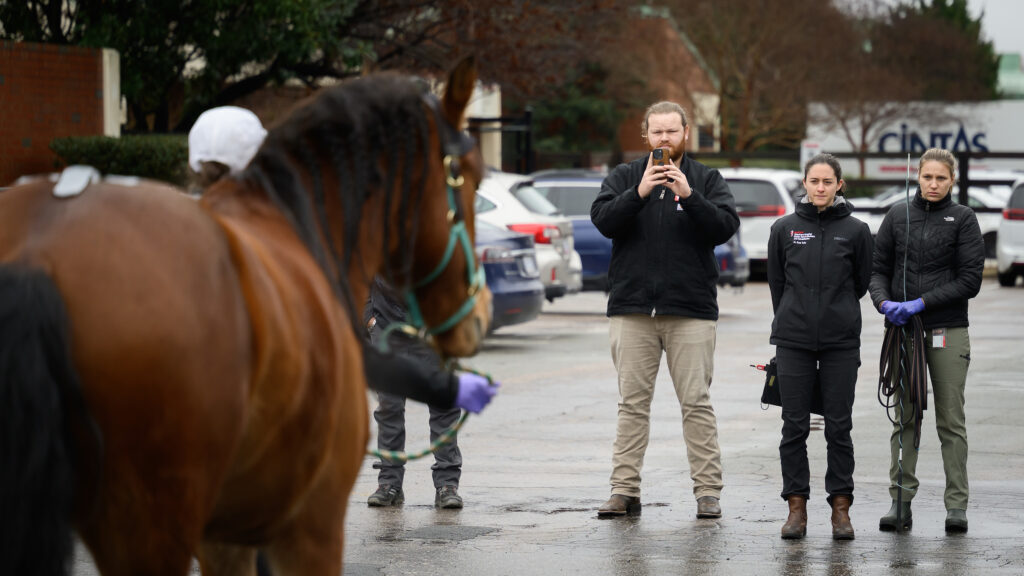
If The (Horse)Shoe Fits
Tufts, an American and Canadian dual citizen, was born near Canada’s capital city of Ottawa to veterinarian parents and spent much of her childhood in Ithaca, New York. She gained an early appreciation for veterinary medicine through her mom, a lab animal specialist, and her dad, a mixed animal practitioner.
She learned to ride horses in elementary school through lessons offered at Cornell University. When her older sister joined an indoor polo team, Tufts took interest in the sport and kept playing after the family moved to northeast Connecticut.
She later joined the University of Connecticut’s high school polo team, taking the offensive Number One position, and followed onto the university’s club team as an undergraduate.
“That’s when I really got more excited about equine athletes and caring for them, or at least becoming an equine veterinarian,” says Tufts, who majored in animal science.
Tufts and her teammates regularly visited the university farm to exercise the horses, feed them and muck their stables. They helped rehabilitate horses with minor injuries, but advanced medical care came from Tufts University’s veterinarians (no relation), who Tufts watched with interest.
Her high school and college experiences working at a local small animal clinic and an equine ambulatory practice confirmed for her that equine medicine was her path. After graduating with her bachelor’s degree in 2017, Tufts moved to Raleigh to attend the NC State College of Veterinary Medicine.
“One thing that I didn’t expect but was very apparent, even from orientation, was how supportive everyone was,” says Tufts, from the Class of 2021. “Faculty would say things like, ‘We’ll do everything we can to help you succeed,’ which I didn’t expect at all, coming from a big university where no one knows who you are. That was very nice to hear, and that sentiment carried over to clinics as well.”
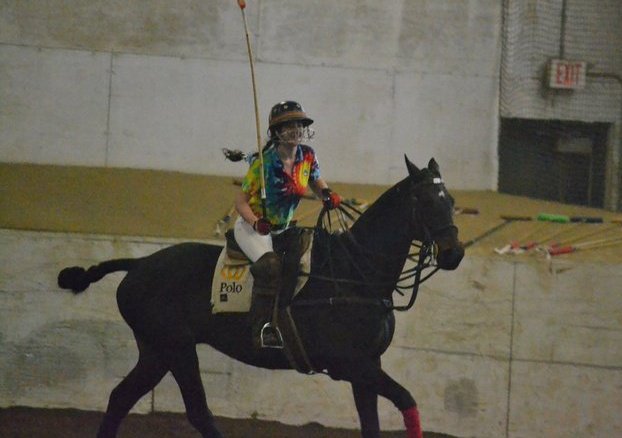
Dr. Timo Prange, currently the college’s executive veterinary medical officer, served as Tufts’ adviser and motivated her to seek extracurricular experiences. His support encouraged her to conduct equine intestinal regeneration research through the Veterinary Scholars Program and complete externships at equine hospitals in North Yorkshire, England, and Tuscany, Italy, during her DVM program.
Tufts learned of sports medicine while working with the NC State Veterinary Hospital’s orthopedics service during her fourth-year clinical rotations, but it took another year before she locked into the specialty. First, she completed a rotating internship at the Equine Medical Center of Ocala, Florida, where she felt drawn to cases that involved lameness and diagnostic imaging — two cornerstones of sports medicine.
At Prange’s recommendation, Tufts applied to NC State’s sports medicine and rehabilitation internship and was admitted in 2022.
‘We Are So Lucky’
What Tufts would quickly learn about equine sports medicine is how all-encompassing it can be. Treatment goals can range from getting a horse into peak competition condition to coaxing a thousand-plus-pound active animal into healing from a bone, tissue, tendon or ligament injury.
“There are so many ways to be creative with horses, because you can’t just ask a horse to pick up their leg a certain way like we can with people, or even get them to do certain things you can get dogs to do,” Tufts says. “And I enjoy working with clients to help them realize that doing simple things around their farm can really help their horse a lot. It’s a spectrum of care.”
That spectrum involves coordinating with services across the hospital, primarily orthopedics and internal medicine. During Tufts’ NC State internship and the first year of her residency, she spent time working with small animal patients to learn the principles and treatment modalities of sports medicine and rehabilitation before scaling these teachings to larger patients.
“One of my favorite things that I get to do here is hot and cold water immersion therapy,” Tufts says, referencing the Large Animal Hospital’s saltwater spa. “That treatment, like many we offer, has several beneficial aspects for the rehab process, like increasing circulation and reducing inflammation.”
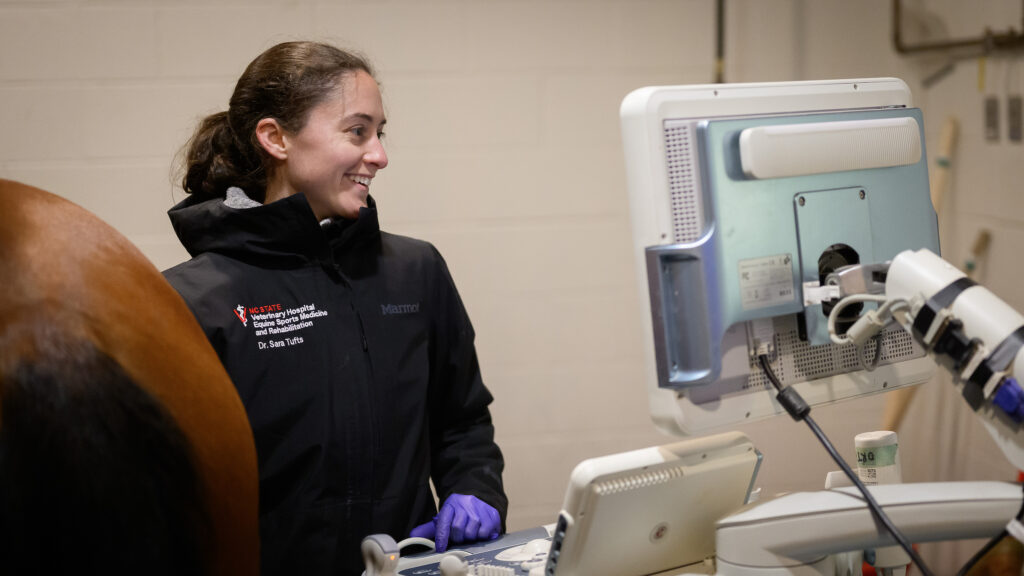
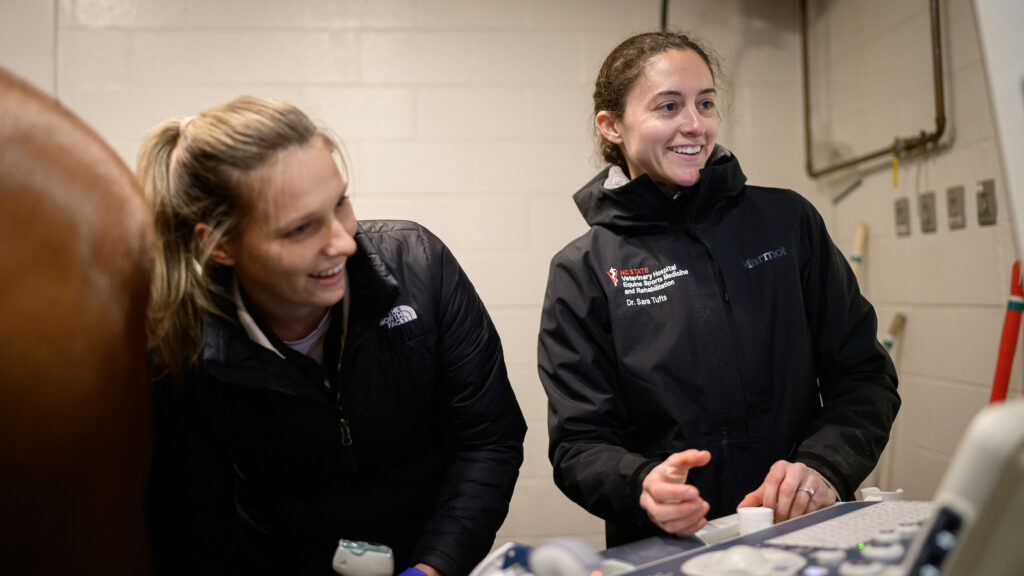
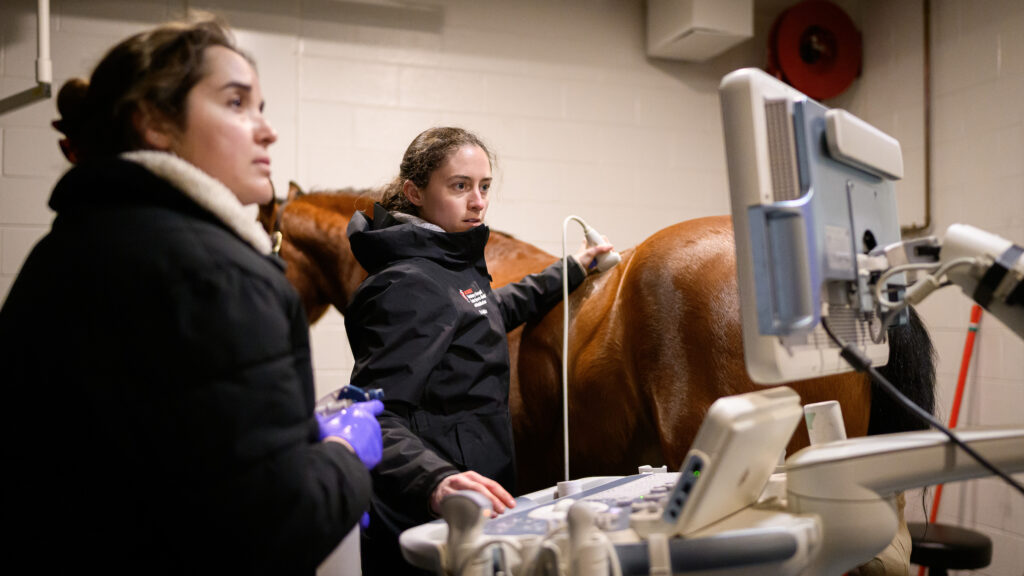
Being able to train in these advanced therapies and offer them to clients at NC State made Tufts’ decision to pursue her residency there easy. She has found her calling in helping horses recover from conditions she frequently saw as an equestrian, a sentiment her mentors echo.
“We are so lucky to have Dr. Tufts as a resident,” says Dr. Caitlyn Horne, an NC State clinical equine veterinarian. “She has such a positive and energetic attitude about everything she does at work, which positively influences everyone around her. The clients and staff love working with her. She values and cares so much for her patients, giving them each the individualized care they deserve.”
Tufts has also gained research experience through her residency by conducting a study on reducing bacterial growth on immersion therapy equipment and working with Dr. Lauren Schnabel’s lab to investigate novel therapies for equine musculoskeletal injuries.
Tufts is keeping her career options open as she approaches the third and final year of her residency. With fewer than 150 active board-certified Diplomates in sports medicine and rehabilitation nationwide, the world is her oyster.
“NC State taught me that this was a career path,” Tufts says. “And with the help of people like Dr. Caitlyn Horne for her daily mentorship and clinical expertise, equine orthopedic surgery professor Dr. Schnabel for traveling and networking at conferences and assistant clinical professor Dr. Carrie Jacobs for getting to present my research, I’ve gotten so many opportunities to put myself out there as a new specialist.”
This article is part of a series featuring house officers across the NC State College of Veterinary Medicine and Veterinary Hospital. Click here to find previous House Officer Highlight stories.
